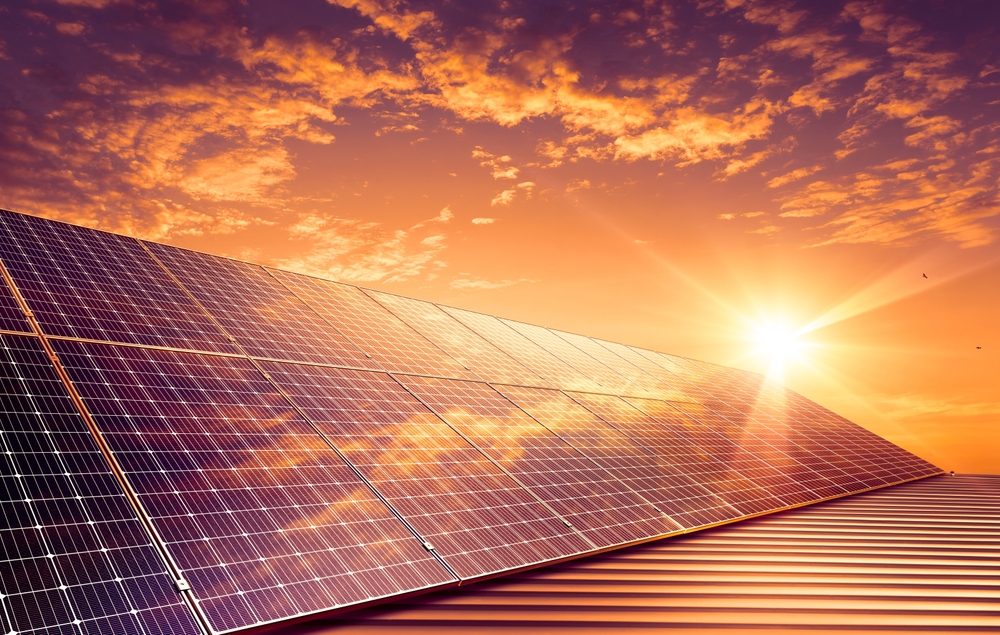
Solar energy is transforming the global energy landscape as a sustainable and renewable resource. In Pakistan, with its abundant sunlight and growing energy needs, solar energy plays a critical role in addressing energy shortages, reducing costs, and promoting sustainability. This article explores the definition of solar energy and its importance in Pakistan current and future energy scenarios.
What Is Solar Energy?
Solar energy is the power harnessed from the sun’s rays using advanced technologies like solar panels and photovoltaic (PV) cells. This energy is a renewable resource that can be used for electricity, heating, and other purposes. Unlike fossil fuels, solar energy is clean, eco-friendly, and virtually inexhaustible, making it a perfect solution for sustainable energy needs.
How Solar Energy Works
Solar panels absorb sunlight and convert it into electricity through photovoltaic cells. These cells generate direct current (DC) electricity, which is then converted into alternating current (AC) by an inverter for use in homes and businesses. Excess energy can be stored in batteries or supplied back to the grid.
Solar Energy’s Importance in Pakistan
Pakistan faces a severe energy crisis, marked by power shortages, rising electricity costs, and environmental challenges. Solar energy offers a viable solution, addressing these issues and creating economic and environmental benefits.
Meeting Pakistan’s Energy Demand
Pakistan experiences an average of 300 sunny days annually, making it ideal for solar power generation. Solar energy can help meet the increasing energy demand in urban and rural areas, reducing dependence on costly imported fuels.
Cost-Effective Energy Solution
Rising electricity costs have burdened Pakistani households and businesses. Solar energy, after initial installation costs, offers a cost-effective alternative. By generating their own power, consumers can lower utility bills and avoid frequent electricity price hikes.
Reducing Power Outages
Power shortages are common in Pakistan, especially during peak summer months. Solar energy provides an independent power source, reducing reliance on the national grid and minimizing load shedding in areas with solar installations.
Environmental Benefits of Solar Energy
One of the major advantages of solar energy is its environmental impact. In a country like Pakistan, where pollution levels are rising, switching to solar power can significantly contribute to a cleaner environment.
Lowering Carbon Emissions
Solar energy does not produce harmful greenhouse gases like traditional energy sources. Using solar panels reduces Pakistan’s carbon footprint, contributing to global efforts against climate change.
Preserving Natural Resources
Unlike fossil fuels, solar energy does not deplete finite resources such as coal or gas. This helps preserve these resources for future generations while ensuring energy security.
Solar Energy Projects in Pakistan
The government and private sector in Pakistan have recognized the potential of solar energy. Several large-scale and small-scale projects are underway to increase the adoption of solar power.
Quaid-e-Azam Solar Park
Located in Bahawalpur, Punjab, the Quaid-e-Azam Solar Park is a significant solar project. It has the capacity to generate hundreds of megawatts, making it a critical step toward renewable energy development in Pakistan.
Solar Initiatives in Rural Areas
Rural areas in Pakistan often face electricity access challenges. Solar energy projects have provided off-grid solar solutions, enabling electricity in remote villages for lighting, irrigation, and household needs.
Economic Opportunities in the Solar Sector
The solar energy sector has opened new economic avenues in Pakistan. From job creation to boosting local businesses, the solar industry contributes significantly to the country’s economic growth.
Job Creation
Solar panel installation, maintenance, and manufacturing have created thousands of jobs. With the growing demand for solar energy solutions, this sector is expected to expand further, providing employment opportunities across the country.
Supporting Local Businesses
Small and medium enterprises (SMEs) benefit from solar energy solutions, reducing operational costs and enabling these businesses to compete in the market effectively. Solar-powered equipment also supports industries like agriculture and manufacturing.
Overcoming Challenges in Solar Energy Adoption
Despite its benefits, the adoption of solar energy in Pakistan faces challenges. These include high initial costs, lack of awareness, and insufficient government support.
High Installation Costs
Although solar panels provide long-term savings, the upfront installation cost remains a barrier for many households and businesses. However, government subsidies and financing options can make solar power more accessible.
Awareness and Education
Many people in Pakistan are unaware of solar energy’s potential benefits. Awareness campaigns and educational initiatives can help promote the advantages of switching to solar power.
Policy Support
Stronger government policies and incentives are needed to encourage investment in solar energy. Tax benefits, net metering systems, and easier import procedures for solar equipment can drive faster adoption.
Future Prospects for Solar Energy in Pakistan
Pakistan’s renewable energy future is promising, with solar power expected to play a central role. By investing in technology, infrastructure, and awareness, Pakistan can harness its abundant solar potential to meet energy demands and ensure sustainable development.
Technological Advancements
Advancements in solar panel efficiency and energy storage will make solar energy even more viable. Pakistan must adopt cutting-edge technology to maximize energy generation and storage capacity.
Expanding Solar Farms
Developing large-scale solar farms across the country can significantly enhance energy production. This not only reduces dependency on fossil fuels but also helps stabilize electricity supply nationwide.
DSG Energy is at the forefront of transforming Pakistan’s energy landscape by promoting renewable energy solutions. Specializing in cutting-edge grid-tied solar system installations, the company aligns perfectly with the growing importance of solar energy in Pakistan. By enabling smarter energy consumption, DSG Energy not only supports reducing reliance on imported fuels but also contributes to a cleaner environment and a more stable electricity grid. With a focus on creating sustainable energy for the future, DSG Energy empowers households and businesses to embrace solar energy and enjoy long-term savings while supporting environmental preservation.
Key Takeaways on Solar Energy in Pakistan
Solar energy offers a transformative solution to Pakistan’s energy challenges. By embracing this renewable resource, Pakistan can achieve energy independence, economic growth, and environmental sustainability. Expanding solar projects and promoting awareness will help unlock the true potential of solar energy in the country.





Leave a Reply